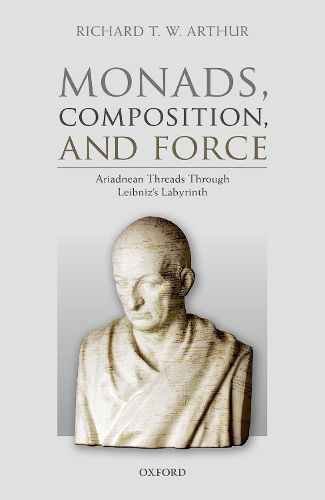Readings Newsletter
Become a Readings Member to make your shopping experience even easier.
Sign in or sign up for free!
You’re not far away from qualifying for FREE standard shipping within Australia
You’ve qualified for FREE standard shipping within Australia
The cart is loading…






In Monads, Composition and Force, Richard T. W. Arthur goes against a long trend of idealistic interpretations of Leibniz’s thought by taking seriously his claim of introducing monads to solve the problem of the composition of matter and motion. Offering a fresh interpretation of Leibniz’s theory of substance, Arthur argues that although monads are presupposed as the principles making actual each of the infinite parts of matter, bodies are not composed of them. Leibniz conceives the monads as enduring primitive forces, whose modifications are the derivative forces of physics, from which bodies and their motions result as real phenomena. Arthur also analyses Leibniz’s engagement with seventeenth century atomism, examines the scholastic metaphysics of the plurality of forms, and connects Leibniz’s contributions to biological science with the dynamical foundations he provides for modern physics.
$9.00 standard shipping within Australia
FREE standard shipping within Australia for orders over $100.00
Express & International shipping calculated at checkout
Stock availability can be subject to change without notice. We recommend calling the shop or contacting our online team to check availability of low stock items. Please see our Shopping Online page for more details.
In Monads, Composition and Force, Richard T. W. Arthur goes against a long trend of idealistic interpretations of Leibniz’s thought by taking seriously his claim of introducing monads to solve the problem of the composition of matter and motion. Offering a fresh interpretation of Leibniz’s theory of substance, Arthur argues that although monads are presupposed as the principles making actual each of the infinite parts of matter, bodies are not composed of them. Leibniz conceives the monads as enduring primitive forces, whose modifications are the derivative forces of physics, from which bodies and their motions result as real phenomena. Arthur also analyses Leibniz’s engagement with seventeenth century atomism, examines the scholastic metaphysics of the plurality of forms, and connects Leibniz’s contributions to biological science with the dynamical foundations he provides for modern physics.